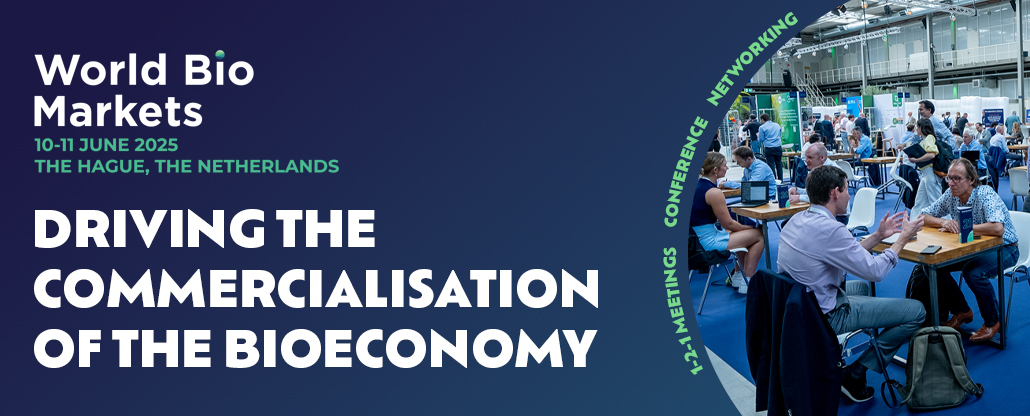Entrepreneurship plays a big role in scaling biobased capacity. Yet bringing novel biomaterials and biochemicals to market entails a high level of risk thanks to still-developing supply chains, regulations, and infrastructure.
Venture capital funds are often an important source of funding since they are among the few entities willing to take on the challenge. Only a handful specialise in the bioeconomy, often alongside a broader focus on climate tech. Here, we look at three funds with significant bioeconomy investments: Synthesis Capital, Deep Science Ventures, and Baruch Ventures.
Synthesis Capital: the firm behind Beyond Meat
Founded in 2020 Synthesis Capital is a venture capital firm based in London. The fund has been behind several prominent biobased startup financing rounds in the past year, including Triplebar (computer-aided biotech research and development), Evonetix (DNA synthesis on a chip), and GANNI (non-animal and non-petroleum leathers).
Despite the diverse portfolio, the company is a specialist in novel food proteins. This reflects the background of its co-founders: Costa Yiannoulis, who sat on the board of Redefine Meat, and Rosie Wardle, who formerly established an investor network aimed at tackling ESG risks in the global food sector.
The most famous of Synthesis Capital’s early proteges in food tech was Beyond Meat. Backed by the likes of Leonardo di Caprio, the plant-based meat firm went public in 2019.
When Beyond Meat’s sales plummeted, it quickly became the poster child for deflated investor expectations around food tech. By 2023, the market had concluded alternative proteins had been heavily over-valued.
Still, Synthesis Capital is sticking to the scene. The company bets that long-term demand for low-carbon, land-efficient foods will grow as governments scramble to hit climate targets. As the most established venture capital firm in the space, it is in a much better position to reap any eventual dividends than investors that piled in during the heady years of the mid-pandemic.
Food tech flourishes
Synthesis’ portfolio contains the whole range of novel proteins on the market today, from the most cutting-edge fermentation techniques using carbon feedstock to more traditional ‘plant-based’ meat substitutes.
On their list is Perfect Day, a recombinant protein manufacturer replacing livestock slaughter with microbial manufacturing. The company customises their industrial microbes, combining genes from different sources inside them so that they produce dairy and meat substitutes inside their bodies.
Another Synthesis-backed startup is UPSIDE Foods whose methods of food production move it under the ‘cultivated meat’ category. The company makes a protein product that stays close to its source material: real livestock meat.
Unlike the designer proteins of Perfect Day, Upside creates exact replicas of farmed meat and dairy, coaxing microbes to reproduce cells sampled from live animals, be it pigs or cows. Both methods get rid of the need for animal slaughter.
One of the most technologically daring startups backed by Synthesis is Austria’s Arkoen Biotechnologies. Usually, fermented protein producers feed their industrial microbes on sugars. Here, the microbes absorb just carbon dioxide and hydrogen in the air around them. This microbial gas fermentation has immense potential for a sustainable supply of proteins as it can make use of a cheap and abundant feedstock.
Synthesis also targets startups that use food waste in innovative ways: Hyfe makes biomanufacturing inputs from the waste streams of food processing plants.
Looking at Synthesis’ food tech portfolio gives an insight into how diverse the alternative protein industry has become. The sci-fi vision behind Mozza Foods is to grow cheese inside plants. The startup has a patented its “Cheesebean” soybean, where the bean contains caseins found in cow milk. These caseins are extracted and processed into cheeses that melt and taste like they could be from farmed produce, getting rid of the need for methane-emitting, land-hungry cows.
Deep Science Ventures: problems and solutions
Venture funds have a bigger appetite for risk than most other funding entities. Even so, even venture capitalists tend to favour more mature technologies – a slightly less risky bet than taking on unproven, early-stage concepts.
London-registered Deep Science Ventures, founded in 2016, stands out in this regard. The fund is willing to take on early-stage ventures as long as they align with its demanding list of criteria, including founder teams that possess both technical and commercial experience.
The fund nurtures enterprises in the areas of climate, agriculture, pharmaceuticals, or computation, organising residentials that support would-be founders develop and market their tech.
Deep Science looks for potential startups through the prism of clearly defined problem sets. The startup then conducts a review of market and scientific research to chart how society could best tackle them. Finally, it advertises remote ‘residentials’ open to prospective founders with tech solutions that fit its blueprint. From there, the company develops the optimal pathway to commercialise the product, informed by the latest academic literature.
Deep Science in climate and agriculture
Biobased solutions are prominent in two of Deep Science’s chosen sectors: climate and agriculture. In climate, one area of technological intervention that Deep Science wants to invest in is biological carbon capture and storage tech systems that can increase the time warming gases are prevented from returning into the atmosphere.
Currently, it is difficult to guarantee that carbon dioxide removed through carbon capture systems will not just be released back into the atmosphere within a relatively short time span, rendering them ineffective at reducing atmospheric carbon.
The startup also works in traditional bioeconomy areas, with current open residentials listed on the website calling for founders with ideas on zero-carbon packaging and industrial plastics.
In agriculture, Deep Science is now looking for founders that address four key issues – finding sustainable methods of crop pollination as insect populations collapse, preventing post-harvest loss, sustainable cacao farming, and soil regeneration.
One of Deep Science’s broad aims is to support companies develop new biobased soil conditioners and plant fertilisers that do not rely on high carbon emissions to manufacture and that can also restore damaged soils. They speak about developing farming methods that replace current extractive models of agriculture that could be leading us towards a ‘catastrophic’ collapse in our global food systems.
The company looks for applicants who are ‘entrepreneurial-minded individuals’ with deep tech and commercial expertise. Once on the residential, they are given support on blueprinting a path to marketing their products as well as some early investments.
Baruch Ventures: scaling quickly
San Francisco-based Baruch Ventures, founded in 2012, is the oldest VC on this list. It focuses on commercialising biotech or tech at the intersection of chemistry and biology that support nature-based climate solutions or modular biomanufacturing platforms.
They aim to bring highly sustainable manufacturing methods and biobased products into the mainstream quickly by picking tech that can be “better, faster, and cheaper than technologies based on fossil fuel feedstock”.
Most of its assets are pharmaceutical and health startups. However, other startups in its portfolio are focused on biobased chemicals, such as beauty ingredients, that are destined for high-volume, high-demand uses in large consumer markets. Baruch Ventures’ portfolio contains 16 startups in this category, which it classifies as ‘ubiquitous biomanufacturing’ ventures.
Geltor is one of the biobased industrial biotech startups on the list, specialising in both developing and mass-producing proteins, mainly for clients in the cosmetics industry.
For cosmetics manufacturers that want biobased products, Geltor is a one-stop protein service, taking on client needs and genetically tailoring proteins with distinctive physical properties that would not be found in ready quantities naturally.
Geltor develops proteins using computational modelling and the selection of optimal strains. The computer work speeds up the discovery of new, niche, and application-perfect proteins because it allows the company to learn about the properties of particular protein variants without costly laboratory experiments. The results are refined strains possessing very specific properties that fit industry niches perfectly.
Microbes as medicine and methane fertiliser
Another standout startup backed by Baruch is Native Microbials, founded in 2015 to create animal health supplements by reproducing beneficial microbial communities already found in nature.
The startup samples the microbial communities – microbiomes – that exist inside particularly healthy animals. The product relies on the biomedical insight that microbial communities which exist in animal guts are an indispensable element of health. Particular combinations of microorganisms work to produce diverse chemicals that support digestion, cognition, and immune defences.
Once Native identifies the signature microbial communities that seem to support a healthy animal immune system, the startup reproduces these at scale, selling them as an alternative ‘endomicrobial feed supplement’ for both livestock and pets. The idea is to transplant a health-promoting microbiome into the bodies of animals with a weaker immune system.
Native Microbials is not Baruch’s only agriculture venture. Windfall Bio takes methane and transforms it into organic fertiliser that could displace the synthetic fertilisers used in farming today.
Synthetic fertilisers are notorious for driving a host of environmental problems, from carbon emissions to eutrophication. Climate-warming methane from livestock is another huge barrier to making farming more sustainable.
Winfall’s circular route to fertiliser manufacturing could make agriculture greener by using up its methane wastes while at the same time offering an alternative to high-carbon dioxide-emitting synthetic fertilisers.







